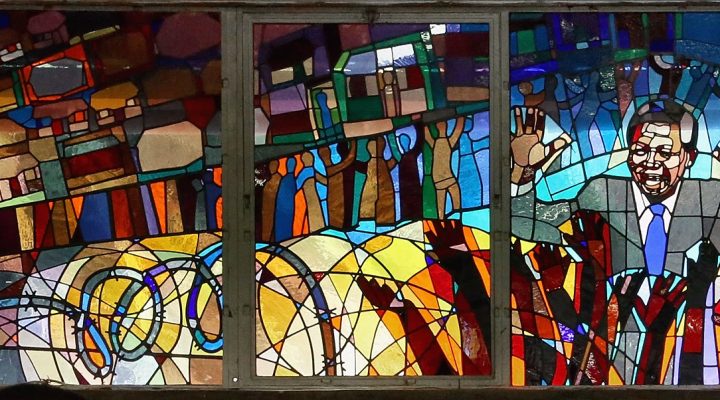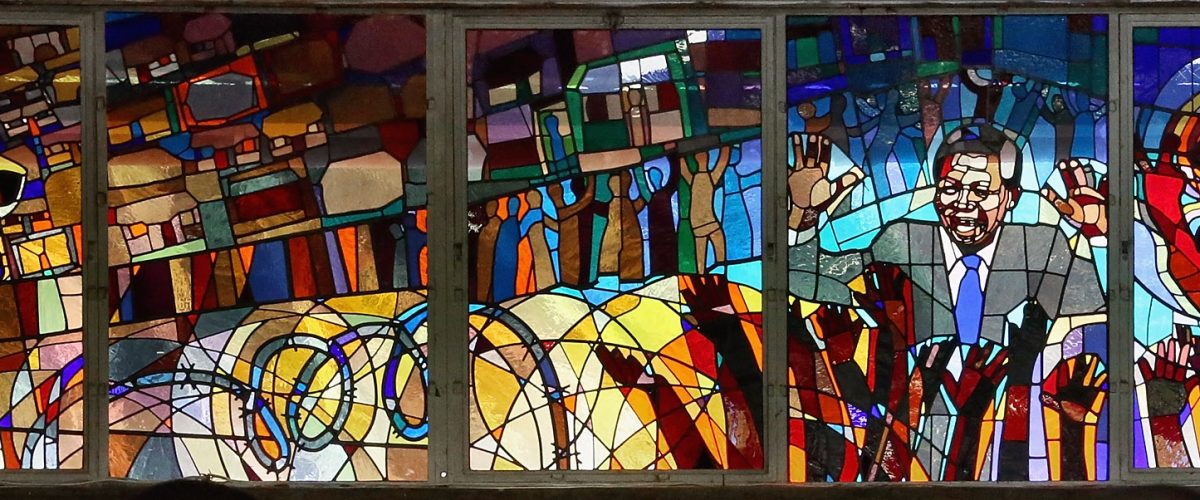White Christians have a moral obligation to address the white supremacy that has historically infused and still permeates American Christianity, Robert P. Jones said during a recent lecture to the Chautauqua Institution.
“Refusing to address this sinister disorder in our faith will continue to generate serious negative consequences not just for our fellow Americans, but also for ourselves and our children. Inaction is a tacit blessing of white supremacy’s continued presence as a Christian habit and virtue,” said Jones, president and founder of Public Religion Research Institute and author of White Too Long: The Legacy of White Supremacy in American Christianity.
“We must recover from our white supremacy induced amnesia, and root it out from our institutions, religion and psyche and move beyond forgetfulness and silence,” Jones said during his Sept. 10 address to the institute, a nonprofit in southwestern New York that hosts discussions and programs on issues of political, social and religious importance in American society.
That recovery does not simply involve apologizing to African Americans for centuries of oppression and demanding forgiveness in return, he said. “This transactional concept is a strategy for making peace with the status quo, which is a very good deal indeed if you’re white.”
White supremacist ideology entered into American Christianity from the founding of the nation, Jones said. “That flaw is the idea that America was divinely ordained to be a Promised Land for European Christians, a kind of new Zion. A model for the rest of the world. And underneath that vision, its implied presupposition was that white people were superior to all other races because they were the bearers of ‘civilization’ and Christianity. This is the logic of white supremacy and domination.”
“These voices have been out there for centuries, unheeded, unheard. What would it mean to take these lamentations seriously?”
Black leaders have been trying to alert the white church about these defects throughout history, including Frederick Douglas, W.E.B. De Bois, Martin Luther King Jr. and contemporary author James Baldwin, the author said. “These voices have been out there for centuries, unheeded, unheard. What would it mean to take these lamentations seriously?”
White discomfort is one answer to that question. Jones told his listeners to expect a feeling of tenseness, and perhaps an urge to flee the room, as he continued to lecture. “It is a response to information that is difficult to process. Welcome it to sit next to you.”
The risks of not doing so are much worse than any discomfort, he said. “The danger is we will obviously continue the flawed pattern. The problem, for those us who are white and Christian, is the flaw is nearly impossible to see. Our cultural position has rendered it nearly invisible.”

Robert P. Jones (Photo by Noah Willman)
But Jones believes the invisibility of white supremacist Christianity is no accident. “We white Christians have only maintained our naivete about this fatal flaw by an energetic, willful ignorance. We have built theologies, philosophies, institutions and an entire cultural world to hide it from ourselves.”
Jones said he experienced those uncomfortable sensations in years of research into the subject. It got personal when a 19th century estate document revealed that one of his Georgia ancestors owned slaves.
He recalled the shock and pain of seeing a 19th century family Bible containing the names of Baptist pastors and farmers combined with an estate document.
“Among the property listed are four human beings,” he said. The document listed “‘one negro woman named Naomi, $800. One named Susan, at $450. One named Eliza, at $275. And … a boy, $150. These four human beings made up 72% of the assets of that family in the settlement, and they were a middle-class family. And in that Bible, those farmers and preachers were also enslavers and Confederate soldiers.”
Another uncomfortable revelation came during seminary when Jones learned his denomination, the Southern Baptist Convention, “had been founded on the idea that chattel slavery could flourish alongside the gospel of Jesus Christ” and that slavery “was not just seen as possible or tolerable, but divinely mandated.”
“White churches have not just been complacent and they have not just been complicit.”
U.S. congregations have continued to support that ideology into the present day, he said. “White churches have not just been complacent and they have not just been complicit. Rather, as the dominant cultural power in the U.S., they have been responsible for constructing and sustaining a project to protect white supremacy at the expense of Black equality, and this project has framed the entire American story.”
Christian theology also has been coopted by white supremacist ideals, he added.
“While it may seem obvious to mainstream white Christians today that slavery, segregation and overt declarations of white supremacy are antithetical to the teachings of Jesus, such a conviction in fact is just recently born and still only partially conscious for most white American Christian churches,” Jones said. “The unsettling truth is … the Jesus conjured by most white congregations was not merely indifferent to the status quo of racial inequality, he demanded its defense and preservation as part of the divine order of things.”
Related articles:
It’s time to stop giving Christianity a pass on white supremacy and violence | Opinion by Robert P. Jones
The Great Replacement is a lie and not Christian, Southern Baptist pastor explains
The Beloved Community and the heresy of white replacement: How ‘Beyoncé Mass’ gave me hope after the Buffalo massacre | Opinion by Robert P. Jones


